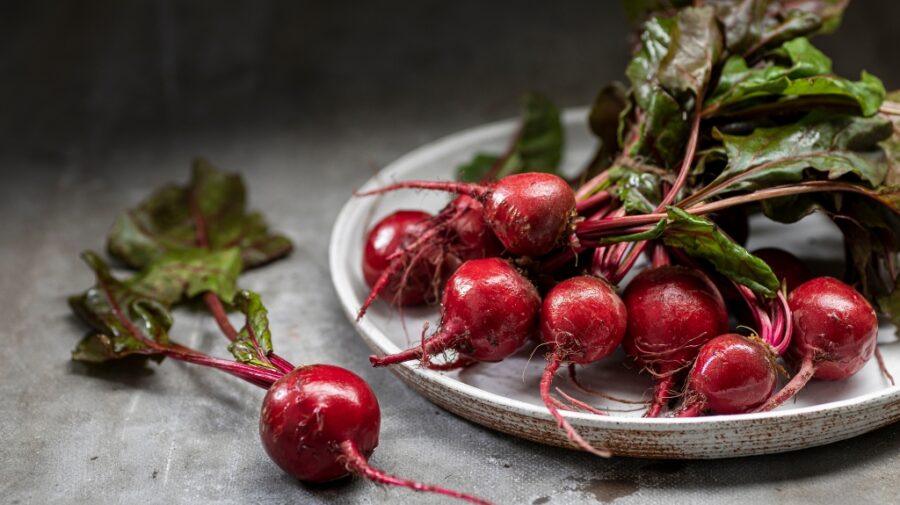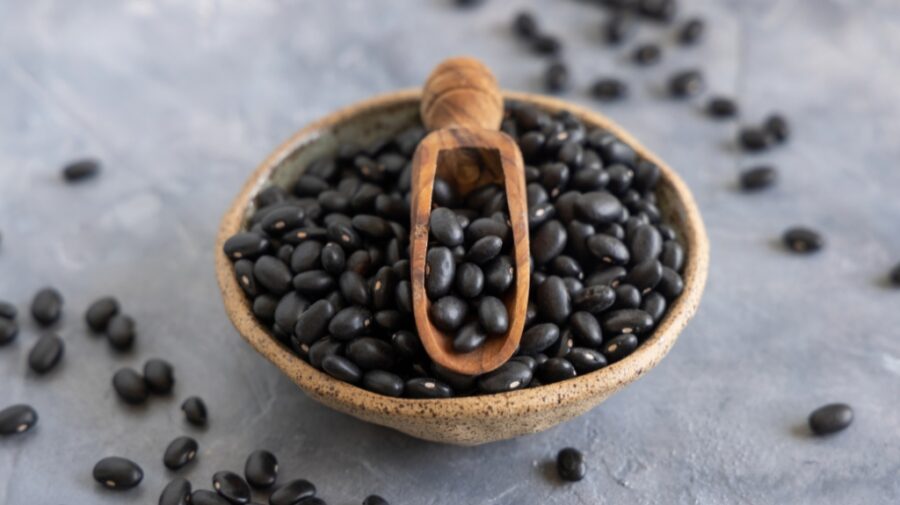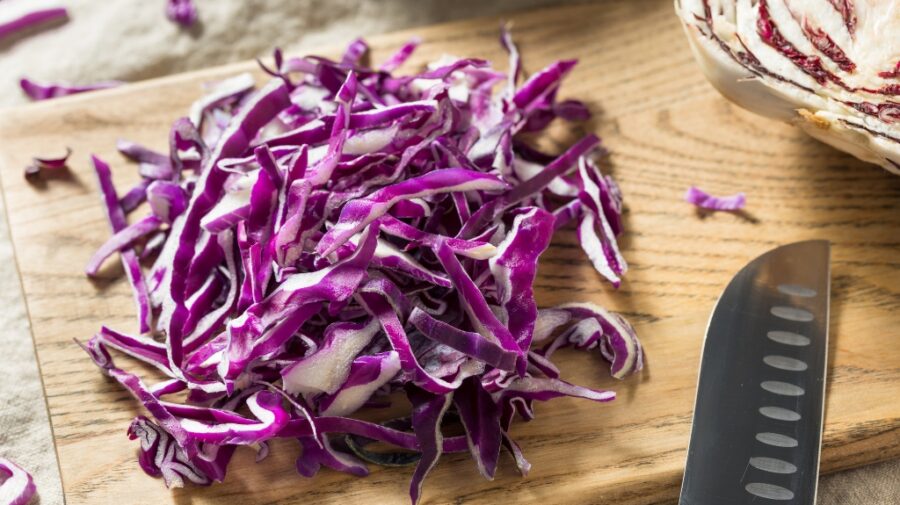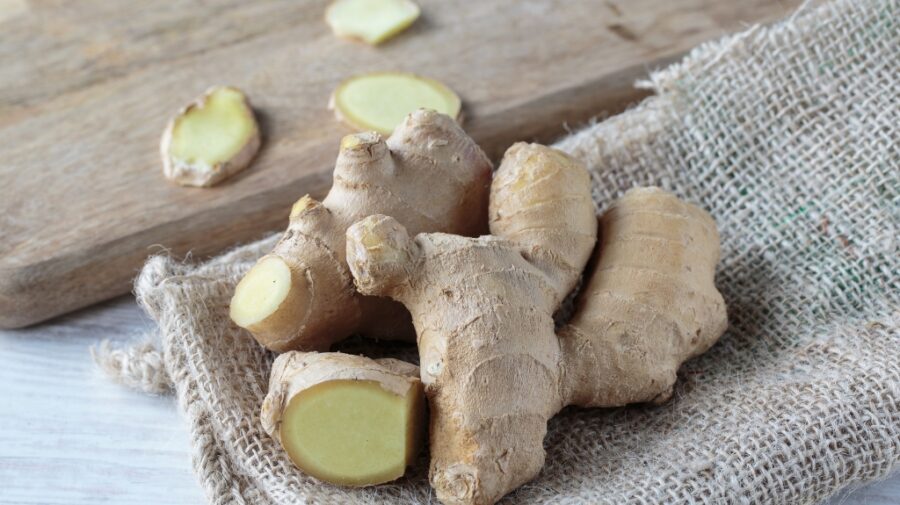

Understanding Carbohydrates
The major ingredients in food can be divided into those that contain energy (which is measured in kilojoules or calories) and those that do not. Macronutrients that contain energy are carbohydrates, fibre, fats, proteins and alcohol. As shown in the table below, the energy content per gram of carbohydrate is 16.8 kilojoules (kJ) which is the same energy content as protein and TWICE the energy content of fibre per gram.

Examples of carbohydrates (as marked on your Portion Planner disc) include:
- 1 serve equals one of the following:
- ½ cup of cooked cous cous
- 1 slice of bread
- ½ lavash bread or other flat bread or wrap
- ½ bread roll
- ½ cup corn kernels or 1 medium cob
- ½ cup mashed potato
- 1 medium potato
- 1 medium piece of sweet potato
- ½ cup cooked pasta
- ½ cup cooked noodles
- ½ cup cooked rice
- ½ cup cooked quinoa
Forms of carbohydrates
Carbs come in 3 forms – all are important in a balanced diet.
- Sugars: Sweet, short-chain carbohydrates – the basic energy blocks to support bodily functions and physical activity. Examples are glucose, fructose, galactose and sucrose. Other names to describe sugar includes – brown sugar, molasses, honey, cane sugar, maple syrup, corn syrup, agave nectar, Stevia.
- Starches: Complex, Long chains of glucose molecules, which the body breaks down into glucose once it’s in the digestive system. High starch foods include vegetables like corn, beans and legumes, potatoes, grains, rice, oats, barley, etc.
- Fibre: we as humans cannot digest fibre, so it does not provide energy directly, but it does feed the friendly bacteria in our digestive system and they produce fatty acids that we can use as a source of energy. Fibre is generally found only in plants and for optimal health, adults should be eating 25 to 30 grams each day. Any increase in fibre in your diet will be helpful. Not only does it help with weight loss and management due to it’s bulking effect, but there is emerging research of it’s vital role in immunity and inflammation due to the Gut-Brain axis.
Healthy vs Unhealthy Carbohydrates
Not all carbs are created equal and some carb sources are healthier for us than others. It’s more important to eat a range of good quality carbohydrates from healthy foods than to follow a strict diet limiting or counting the number of grams of carbohydrates consumed.
The healthiest sources of carbohydrates so called ‘whole carbs’ are usually unprocessed grains, vegetables, fruits and beans.
The less healthy or empty calorie sources of carbohydrates are the more highly processed or refined foods like white bread, pastries, softdrinks, and the like where any remnants of goodness has been removed.
The reason they should be limited or avoided in a healthy diet is that they are digested quickly and cause unhealthy spikes in blood sugar levels, triggering a surge of insulin and leaving you feeling hungry very soon after a meal, often craving more sugary carbs to replenish your energy levels. This vicious cycle can cause you to overeat, gain weight, and over time leads to insulin resistance and eventually type-2 diabetes and heart disease.
Choose healthy carbs – 1 serve equals one of the following:
- ½ cup of cooked cous cous
- 1 slice of bread
- ½ lavash bread or other flat bread or wrap
- ½ bread roll
- ½ cup corn kernels or 1 medium cob
- ½ cup mashed potato
- 1 medium potato
- 1 medium piece of sweet potato
- ½ cup cooked pasta
- ½ cup cooked noodles
- ½ cup cooked rice
- ½ cup cooked quinoa
- 2 rice cakes
- 2 crispbreads
- 3 Vita-weats
- 1 ½ Saladas™ (6 quarters)
- 10 rice crackers
- 2 Ryvitas™
- 5 hot chips
- 3 Cruskits™
- ½ English Muffin
- 2 Saos™
- 1 round crumpet
Busting the No-Carb myth
Carbohydrates or ‘carbs’ have been copping a bad rap of late. Many people think only of white rice, potatoes and pasta but that’s only a fraction of what’s available. There has been a tendency to demonize all carbohydrate-containing foods because of the poor health effects of just some of their processed counterparts.
Carbohydrates are essential for a healthy body. They’re often the primary fuel source for the brain, central nervous system and kidneys. You also need some in your diet in order to metabolise fat.
The basic reason for the recent trend to cut out carbohydrates is the belief that they alone cause weight gain. However humans have been eating carbs for thousands of years, in some form or another. Whereas the obesity epidemic started around 1980, and the type 2 diabetes epidemic followed soon after. So blaming new health problems on a single macronutrient that we’ve been eating for a very long time simply doesn’t make sense and is misleading. Weight gain comes from an excess in overall kilojoules (or energy), which can come from any food source, including fat or protein.
In the short term, following a low-carbohydrate diet may cause you to lose weight simply by restricting kilojoules or energy. Eventually though the body switches to breaking down stores of glucose and glycogen (in the liver and muscles) to replace the carbohydrates it is not getting from food.
In the longer term, eating this way is unlikely to meet your daily nutritional needs. Carbohydrates are an important source of thiamine, folate, vitamins A, E and B6, calcium, magnesium, iron and potassium.
The best way to maintain a healthy weight is not to avoid carbohydrates completely but to combine a balanced diet (and that includes fruits and vegetables, whole grains, lean meats or alternative protein sources, legumes and low-fat dairy products like milk, yoghurt and cheese) with an adequate amount of daily exercise.
Related posts


Navigating the Holiday Season: Strategies for Reducing Alcohol Intake
Read more
The Power of Everyday Movement: How Small Actions Can Boost Your Health
Read more
Refocus Your Health Journey with SMART Goals
Read more
Top Five Tips to help you fly through the Festive Season
Read more
Superfood Spotlight: Beetroot
Read more
A Spring Reset for Your Mind & Body
Read more
Black Bean Quesadillas
Read more
Staying Positive As You Strive For Your Health Goals
Read more
Freekeh and Red Cabbage
Read more